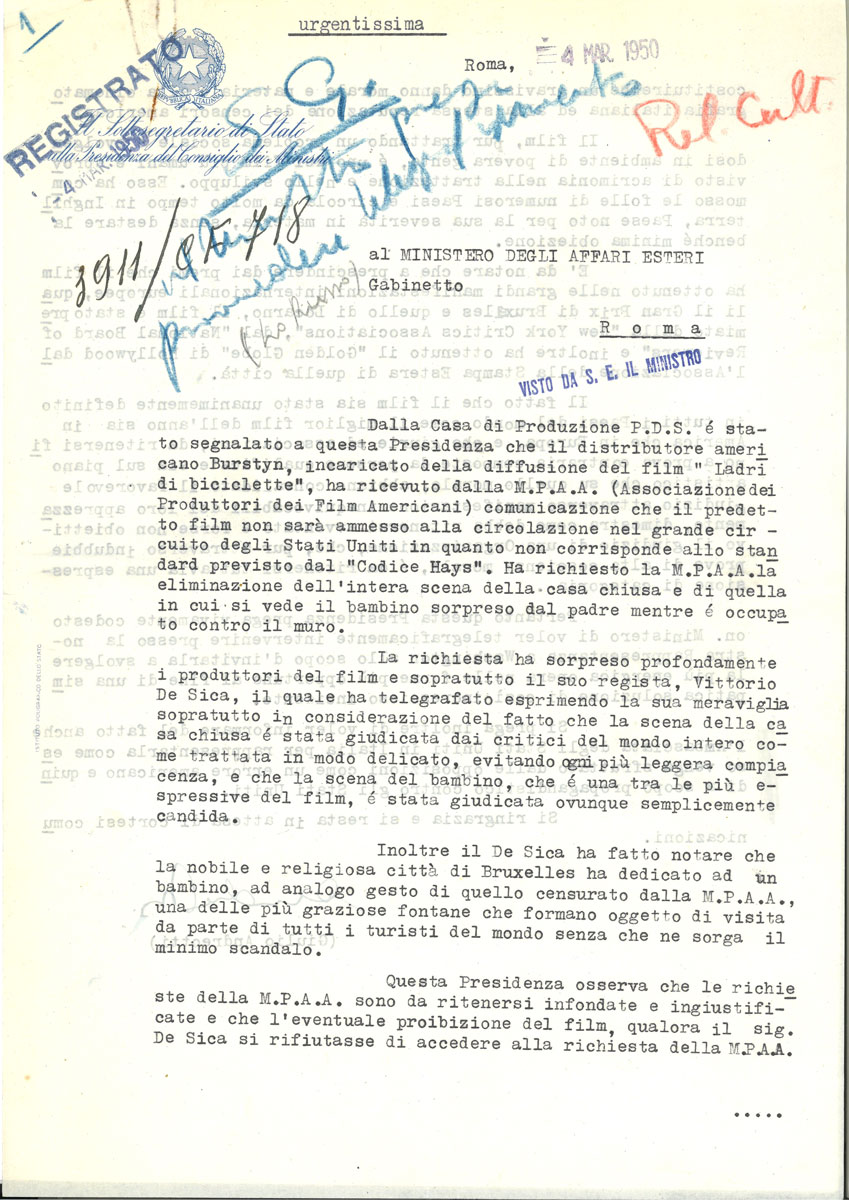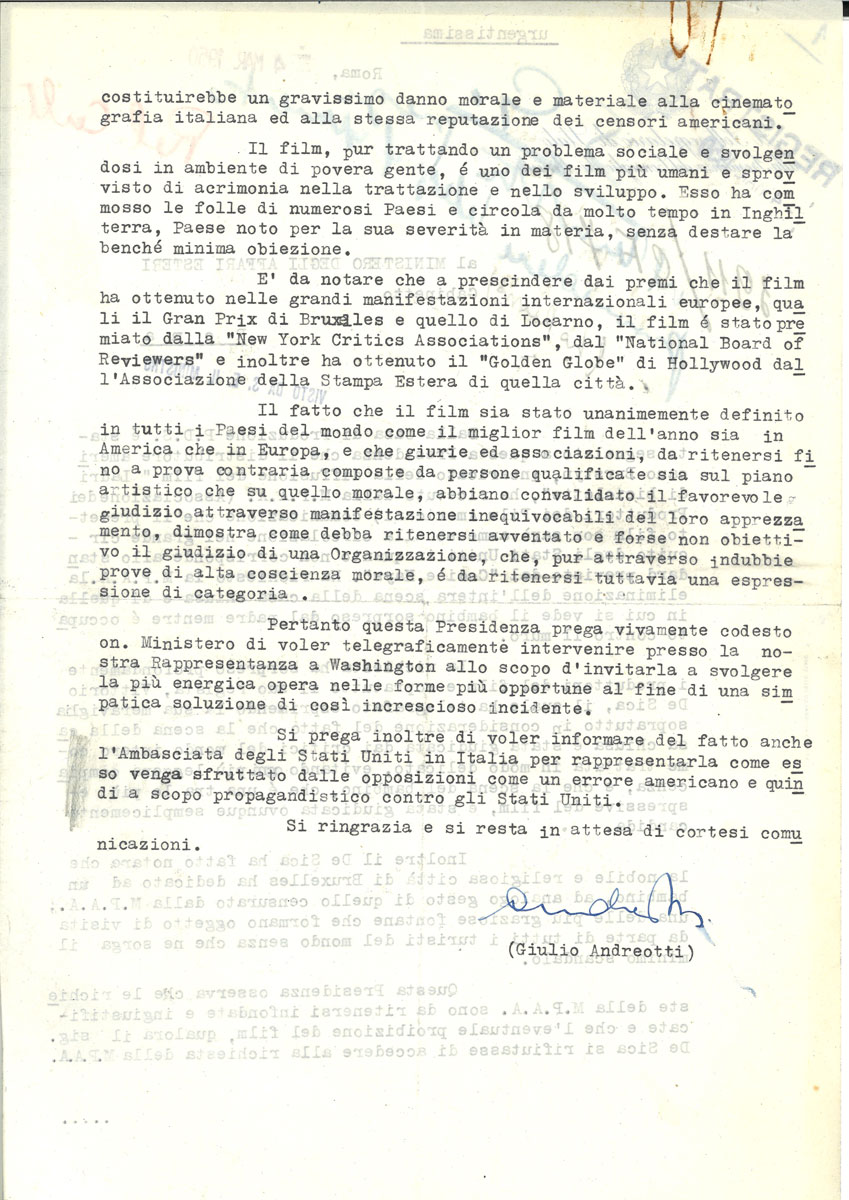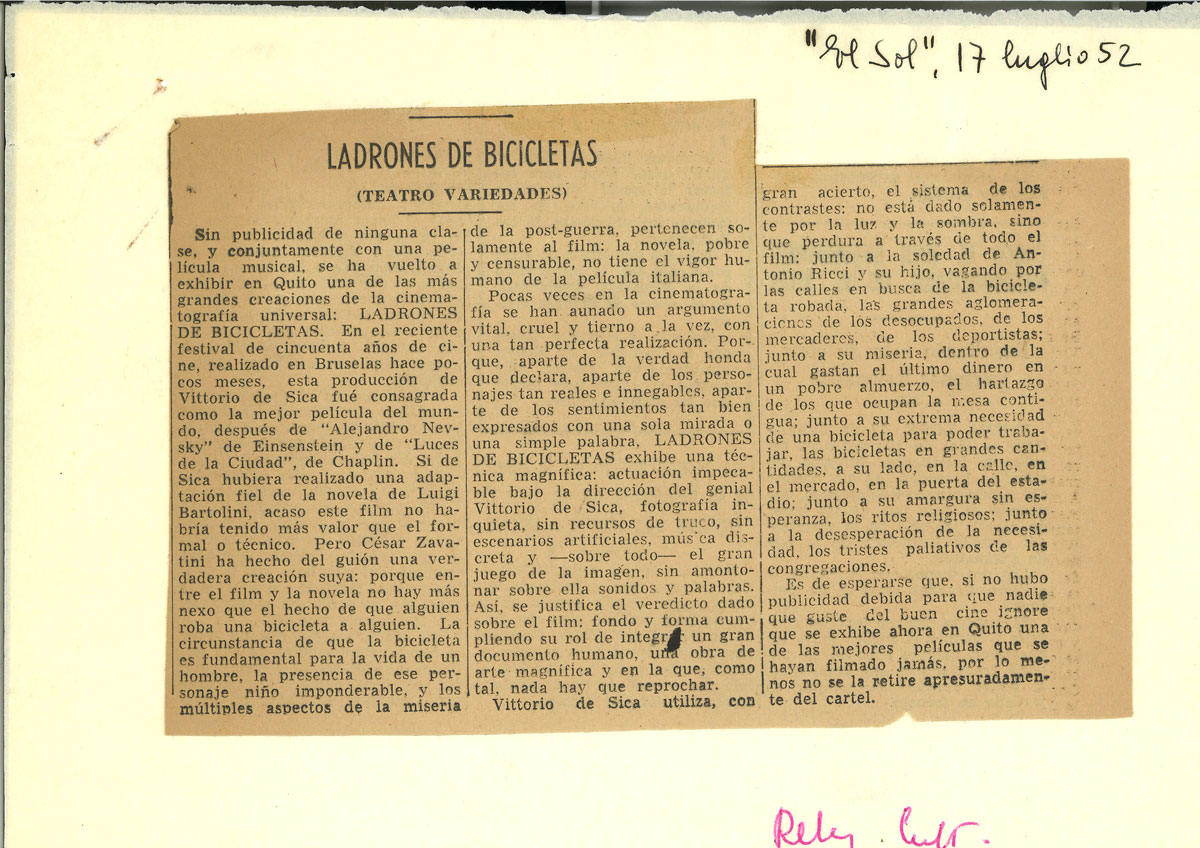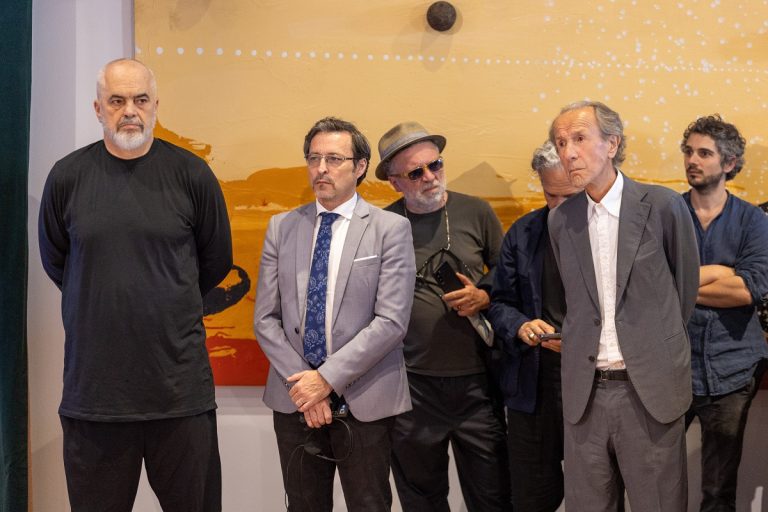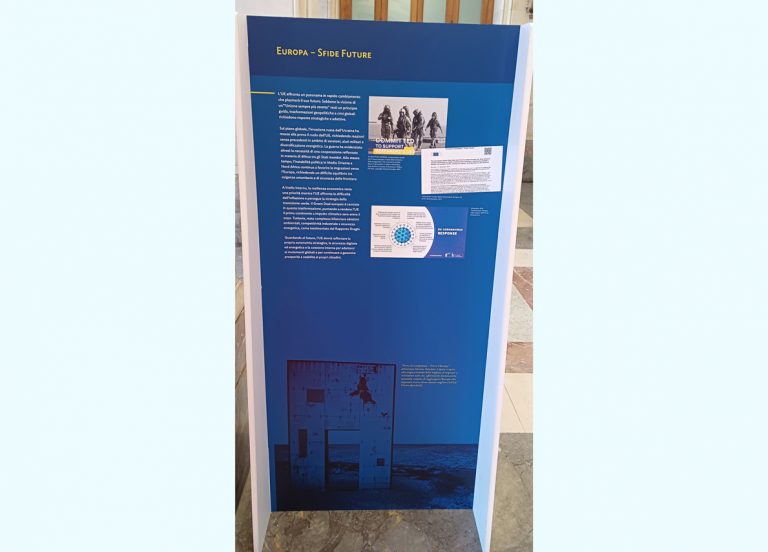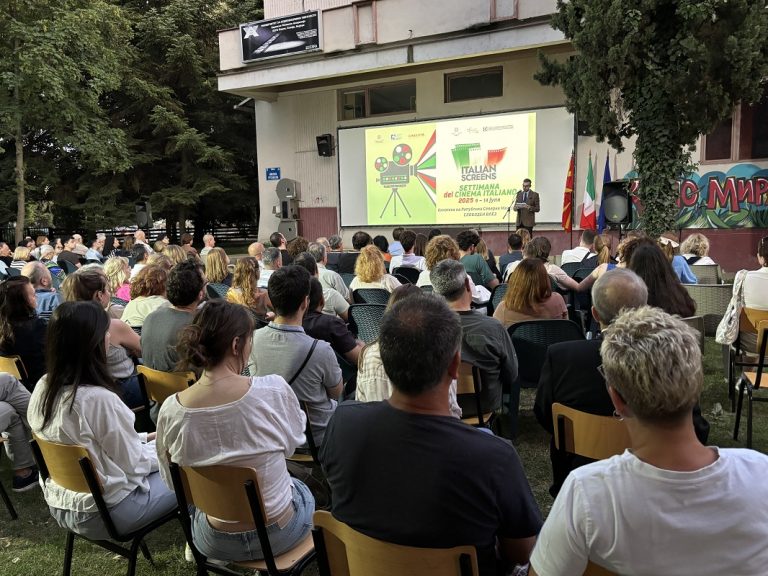The Cinematographic Archive of the Directorate General for Cultural Relations Abroad (DGRC), housed within the Diplomatic Historical Archive at the Farnesina, preserves extensive documentation on the distribution of Italian films and documentaries, Italy’s participation in international festivals and events, and cinematic agreements with other countries—an area that remains a significant aspect of Italy’s cultural presence abroad.
With regard to the distribution of Italian films and documentaries, up until the 1950s, the DGRC lacked funds to purchase films on the open market for overseas cultural promotion. As a result, it regularly requested loans of educational documentaries from the Autonomous Film Archive of the Ministry of Public Education, while tourist documentaries were sent with the support of ENIT. The DGRC also arranged documentary loans from Incom (Industrie Cortimetraggi) and Unitalia Film (the International Union for the Distribution of Italian Film Abroad). Films were generally provided free of charge by private film producers.
These films were dispatched by courier to various foreign offices and returned the same way. As one might imagine, the loans were generally limited to only a few copies due to the lenders’ limited stock, lengthy shipping times, and the cinema industry’s limited interest in providing films free of charge for cultural purposes that offered no immediate financial benefit.
Among the films sent abroad by the DGRC for international screenings was Bicycle Thieves (1948) by Vittorio De Sica, a film considered the masterpiece of post-war Italian cinema. Reviewing the list of countries to which this film was sent gives a sense of its worldwide success, including distant countries like Ecuador, where it’s difficult to imagine an Italian film gaining such popularity.
On both sides of the Iron Curtain, Bicycle Thieves received unprecedented acclaim from audiences and critics alike for an Italian film. This success is documented by international press reviews accompanying the reports from diplomatic offices regarding its screenings. The press at the time highlighted how post-war Italian cinema found a truthful voice to reflect upon some of the fundamental issues of social life, drawing the attention of audiences and political leaders alike.


